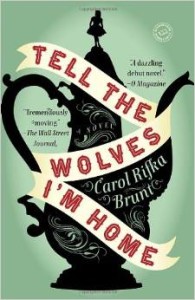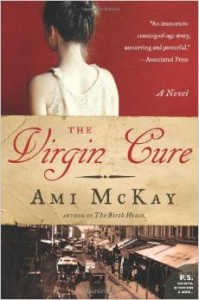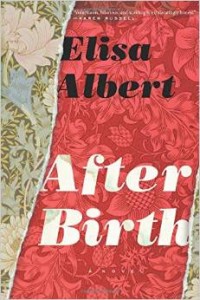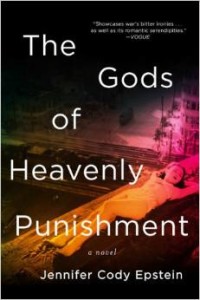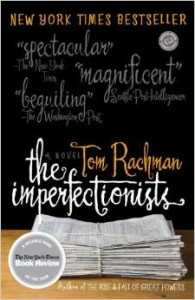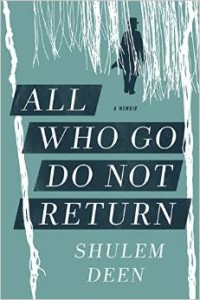Welcome to His Brother’s Keeper, a fictional mystery series set in 2000, in New York. I’ve decided to periodically lend my blog to a friend, Eva Hirschel. Eva doesn’t have a social media presence but she does have a mystery that she wanted to publish serially on-line, so I’m giving her a hand. (If you’re just tuning in now, I suggest that you start at the beginning). Here is Part I, Chapter 3. Enjoy!
Chapter Three
 Later that afternoon I closed my office door behind me, locked it, and went upstairs to retrieve Caleb. He was perched on an overturned plastic tub, building a tower out of blocks.
Later that afternoon I closed my office door behind me, locked it, and went upstairs to retrieve Caleb. He was perched on an overturned plastic tub, building a tower out of blocks.
“Look, Mommy,” he called when he saw me walk into the room, and promptly lost his balance and fell onto the floor. Being Caleb, he got right up and came running to me. If it had been Hannah, I’d be applying band-aids and kisses. Having two children was a fascinating experiment in human behavior and development – put two children in the same family with the same set of parents, same household, same environment, and watch how two completely different personalities emerge.
I told Ronit, who was washing up from Caleb’s snack of peanut butter and banana on rice cakes, that I would take him with me and go pick up Hannah from school. Ronit had to get to a class she was taking at NYU. Caleb and I hunted for his Yankees jacket, and jacket in hand, we set out for Shaarei Shalom, the synagogue in which Hannah’s preschool was housed. Just like the old Jewish joke, there was the synagogue we belonged to, and the synagogue we didn’t belong to. We didn’t belong to Shaarei Shalom, though we gladly sent Hannah to their wonderful, nurturing preschool. But we felt that as a synagogue, it was too big and impersonal, so instead we belonged to Bet Haverim, a smaller, funkier synagogue. Besides, the rabbi at Bet Haverim, Leah, was one of my best friends. Good thing we lived in this part of the world, and more specifically, in this part of Brooklyn, where we had our choice of synagogues.
There’s a little bit of everything in Brooklyn. No place is a better reminder of that than at the South Brooklyn Food Coop. Simon and I work there for three hours a month in order to buy, at just a little above wholesale, gorgeous organic fruits and vegetables, and a great selection of natural foods. Despite what it sounds like, the Coop is no leftover sixties earthy-crunchy thing. The members of the coop run the whole gamut of possibility. Every possible race, nationality, religion, agre group, and sexual orientation is represented, grandparents and just-out-of-college graduates, hipsters, the suit-clad Wall Streeters and the flowing-scarf artists, families who come with the mini-van from New Jersey and load it with apple juice, all-natural lunch box snacks, and frozen free-range organic chicken nuggets, the woman who dresses only in white and can’t be touched by any other human, the anti-irradiated food lobby, and the raw food enthusiasts who buy wheatgrass and carrots in ten pound bags. The selection of food represents the diversity of the members and of Brooklyn as a whole, from the organic kosher chicken to the masala curry, from the tomatillos to the kale, and the humus (the coop’s best selling product) to the lowfat coconut milk and the Jamaican jerk sauce. Simon and I love the coop, though we also love to hate it. One of the down sides is that some people seem to think that being a member allows them the right to tell any other member what they think about their purchases. My friend Bird, who is most definitely not a member of the coop, loves to call it “The People’s Republic of Brooklyn,” and she’s not totally wrong. I almost quit the day the member doing checkout rang up my jars of organic all-natural baby food and self-righteously proceeded to tell me that it would be much cheaper and better for my baby and for the earth if I made my own baby food. In my I-have-two-small-children-in-diapers-and-haven’t-slept-through-the-night-in-two-and-a-half-years exhaustion, I almost hit him over the head with the nearest available frying pan (the coop also sells household goods). But lucky for both of us, I was too worn out, so instead I just invited him over to cook for me. He declined.
Caleb and I held hands as we walked, while I pushed the empty stroller with my free hand. Caleb filled me in on his morning, which had apparently been quite eventful. He and his friend Jeremy built had sand tunnels in the sandbox at the park, and their dinosaurs had quite a time romping through the tunnels. Although he uses a pacifier at bedtime and still rarely sleeps through the night, anyone who meets Caleb in the daytime would think that he is a very mature two year old. He has an enormous vocabulary and never stops talking. Some of my friends with sons his age are worrying that their sons may never say more than “car” or “big.” I, on the other hand, often wonder when Caleb will stop to take a breath. Time spent with him, while absolutely delightful, is filled with non-stop whys (“Mommy, why is wood brown?”) and did-you-knows (“Mommy, did you know that triceratops had three horns?”) and how-comes (“Mommy, how come that lady is wearing a hat?”).
As we walked and Caleb talked, I tried to listen to him while simeulatneously making a mental list at the same time. I spend much of my time unsuccessfully trying to multi-task. I needed to think about what jobs I still had to complete, and how far along I was in the process of each. There were bills to be submitted to clients, a deed to property in upstate New York that needed to be located, there was food to be bought at the coop, an address in Chicago to be clarified, I needed to catch Hannah’s friend Zoë’s babysitter to set up a playdate, and dinner to be cooked. Did Agent 007 ever worry about dinner or playdates? Maybe, but he never had to cook the dinner, and his schedule didn’t revolve around the social lives of four year olds. In any case, this new job that had just come my way couldn’t have been timed better. I was jumpy and unsettled when there was no big project looming on my horizon, and this one promised to be quite big indeed. When I was in between jobs, Simon always encouraged me to write a book, because he knew how crazy I got without something to sink my teeth into. My kids certainly kept me busy, and I loved being with them, but I needed a balance of interesting work and time with the kids to stay sane. I looked forward to telling Simon about this new job tonight over dinner. In the meantime, I’d worry about what to make for dinner. And when I had some spare time, I would start doing some research about Chasidic dynasties and their genealogies.
***
It was many hours until I had some quiet time to myself again. After the kids and I unloaded the food from the Coop and put it away, always a project in and of itself, it was time for an art project. Once the glitter-glue, pom-poms and tissue paper were back on the shelf, hands were washed, and the table was cleaned off, it was time to cook dinner. I wanted to get to work, and was unjustifiably annoyed that neither Ronit nor Simon was here to help out, but of course the reason I had chosen this kind of work was so that I could spend time with my kids. I stood facing the sink, my hands poised above the bowl of salad, and looked out the window into the backyard below. If I had been focusing, I would have seen just how badly the garden needed care, and just how at home our neighbor’s cat was becoming in our yard. Instead, my mind was thousands of miles away, mentally searching through birth and death documents somewhere in Eastern Europe and making lists of questions I would need to ask. It wasn’t until Hannah tugged at my sleeve that I realized I was tossing the salad into a pulpy mess.
After dinner, and after cleaning quarts of tomato sauce off of Caleb and Hannah, I bathed the kids, put them in pajamas, and let them play in their tent for half an hour before story-time. Each floor of our house is long and narrow, with windows in the front and the back. The house, which was built in 1864, still has its original moldings and what real estate ads call WBFP, or working brick fireplaces. But our pride and joy are the fifteen-foot ceilings on the parlor level. This main floor, where our kitchen is housed, is one big open space front to back, though there are pocket doors that can slide out when we’re being formal, which is never. Most of the time the living room and dining room, which make up the rest of the main floor, is one big playroom. Currently, there was a tent in the middle of the living room, which the kids found enormously delightful. Since the mortgage payments on this old rambling brownstone eats up a big chunk on our income, and whatever is left over goes to childcare and preschool tuition, we haven’t invested a lot in furnishing it. So there was plenty of room for a tent in our living room.
While the kids played, I called Leah. Leah is one of a group of friends that Simon affectionately calls The Committee. There are six of us in The Committee. We met as bewildered freshmen at a small New England college that had just begun to admit women, trying to make sense of a place in which men would throw up publicly in the dorm hallways after parties and where women would throw up privately in bathroom stalls after meals. During one particularly bad party in the dorm common room, we found each other upstairs, like refugees from the same homeland. Escaping the offensively loud music, the stench of stale beer, and the behavior of drunk, horny eighteen year old boys, we came together in the room that Leah and I shared. Some brilliant person in the dean’s office had decided that Leah and I, two nerdy urban Jewish girls, would make great roommates, and despite the typecasting, they were right. We met Emma, who lived upstairs with a roommate who spent most of her time doing bong hits, at a Hillel bar-be-que, and Emma introduced us to Meg, who lived in the room next to her. Bird lived down the hall from us in a corner single, and she brought Lucy, who was in the same section of Freshman English. That night we connected so immediately and tightly as a group that it was incredible we had only just met. For the next three years, we lived together, first in sophomore suite, and then off campus in a rambling, decrepit house. And even now, involved as we were in our separate adult lives, five out of the six of us had wound up in New York City and managed to get together relatively frequently. We had individual friendships with each other, and some links were stronger than others, but the whole was definitely more than the sum of our parts. At many points along the way, and not just during my horrible freshman year, I thought of them as my sisters, my role models, my teachers, and occasionally my lifelines.
I dialed Leah’s private line and she answered right away. My lucky day.
“Hey sweetness,” I said. “How are you?”
“Hey Abby,” she answered. “I thought this might be someone else.”
“Thanks a lot. Not only do I not know about this ‘someone else,’ but then you have to rub my face in it by telling me you don’t want to talk to me?”
Leah laughed her deep, throaty laugh.“Yeah, you know me, Miss Congeniality. I met someone last night at a lecture. He asked for my number and I gave him this one.”
“Yeah, since no one knows this number except me and your mother, your brother, and your 25 best friends. Anyway, sorry to disappoint.” Leah had one phoneline at home that she allowed congregants to call her on. She carefully screened those calls, and triaged which ones she really needed to answer from home and which could wait until she was back at her office. Since she worked night and day and almost never took time away from her job, when she did, she guarded her privacy seriously. Then she had another phone line, with a number she released to almost no one, and this phone she picked up when it rang. I was one of the lucky few who knew the number. And now so did some guy she just met.“Don’t worry, he’ll call,” I said to make her feel better. For someone so bright and successful in the rest of her life, her love life, as she was always telling me, was a train wreck.
She sighed. “Or not. So what’s up?”
I proceeded to tell her about the young woman who had come to my office that afternoon. Leah had done some research on Eastern European Chasidic rabbis in rabbinic school. She recommended background reading, and promised to bring a some books to our next get together in a few days time. We started to say our good-byes, but then Leah paused.
“You know, Abs, to the best of my knowledge, there were no survivors of the Halizcher dynasty.”
“What do you mean?” I asked.
“I mean I’m pretty sure that after the Holocaust, there were no survivors, no one to carry on the line. It was a very big deal for the followers of the Halizcher Rebbe. Remember that in those communities, leadership passed from father to son, or in the case of no sons, possibly to a son-in-law. It wasn’t like today where communities do searches and interview rabbis. In that world, rebbes arose and gathered followers, and it generally continued on within the family, generation after generation. It’s still like that among the Chasidic groups today. The Lubavitchers are in crisis because their rebbe died without an apparent heir. He had no sons, no children at all, so not even any sons-in-law or grandsons, and he hadn’t named any one else to be the next leader.”
I sighed. “Well, maybe you have him mixed up with someone else. It’s hard to keep them all straight. There were so many Chasidic rebbes at that time.”
“No, Abby,” she replied. “I’ll check for you, but I seem to remember that specifically, because there’s a story that goes with it. I don’t remember the details, but basically the reason that there are no longer any Halizcher Chasidim today is because there were no survivors from the family after the war. See, after the war, those who survived had nowhere to go. They couldn’t go home of course, because their homes no longer existed. All those Polish villages were Judenrein, rid of Jews. Their property, and their homes, had been taken by Poles. Some groups of Chasidim saw what was coming and had gone to America or Canada. Some even went to Shanghai. But the Halizcher Rebbe, the son of Leib of Halizch, the guy you’re talking about, insisted that he and his followers stay in Europe to show their faith in God. They believed that God would take care of them. His father had recently died and all the power had just passed to him, and he probably needed to prove that he could be a strong leader. Instead of packing, they prayed. The Halizcher Chasidim tried to convince their rebbe to send at least his grandson to America, since apparently it was understood that he would be the next rebbe, to smuggle him out if necessary, but to keep him safe, because while they wanted to trust in their rebbe, they were terrified at what they heard was happening to the Jews. They were willing to stay in Europe themselves and follow the example of their rebbe, waiting for a miracle, but they wanted his grandson safe in America as a kind of insurance policy, so that should something happen to their rebbe during the war, they would have another rebbe waiting in the wings. And so they actually sold whatever little jewelry, gold and silver they owned, and remember, these were mostly poor people, and they brought the money to the rebbe and begged him to send his grandson to America.”
“That’s crazy. They would be willing to risk their own lives, and the lives of their children, but they wanted to save the life of the rebbe’s grandson?”
“Right. You have to remember that for the Chasidim, their rabbi wasn’t just a man, but a direct intermediary with God, a tzaddik, one of the righteous ones. But the rebbe wouldn’t send his grandson away. Maybe he felt it would have made him look weak. Maybe he really believed that a miracle would happen. And also, he had no sons, only four daughters, and of those, only two were married. One son-in-law rejected Chasidism. And the other, the father of that particular grandson, well, everyone knew he wasn’t rebbe-material. So his followers begged him to send away his grandson, the heir apparent, but he refused. Neither he, his wife, nor any of his children or grandchildren survived. They all died in Treblinka. And at the end, those few followers who did survive began to fight among themselves. Some argued that the rebbe had a good reason, though one they couldn’t understand, for not saving his family or even his grandson. They figured that they just weren’t wise enough to understand the reason. Others were angry that he had not made sure there would be someone to carry on the line. One man professed that he was the intended next leader, but no one listened to him. Some were bitter that the rebbe had advised them to stay in Europe when they might have had a chance to leave, and felt that ultimately he had abandoned them. Many were disillusioned and felt that not only had the rebbe let them down, but that God let them down. And so they drifted apart, and went their separate ways. Some joined other Chasidic groups. Some abandoned Chasidism altogether. That was, more or less, the end of the Halizcher dynasty, and the Halizcher Chasidim.”
“Hummm,” I said, chewing on the end of a pencil. “Okay, so I confess I don’t get it. Either your memory is wrong, or this woman heard a story which is wrong, or she’s not who she says she is.”
“My memory is not wrong,” Leah said in her usual confident manner. “If I were you, I’d get back in touch with the woman, and tell her what I just told you. The whole thing sounds like an old man’s fantasy. Break it to her gently. Tell her there are other ways she can do something special for her grandfather.”
I sighed. “Now that sounds easy and sensible, but of course, I don’t have a way to get in touch with her.” There was nothing I could do but sit and wait for her to contact me again. I was sure she would, and I was also sure that we would have a very interesting conversation when we did talk again.
***
Caleb was fast asleep but Hannah was still raring to go. I lay with her in bed, looking up at the glow-in-the-dark solar system on the ceiling above. This was my favorite time of the day, when the house and the kids were quiet and calm. Perched on the edge of the day just ending, we could look back on the day and towards the next. It was a time to take a deep breath and remember what really mattered – to remember how much I loved my kids, to forget about the dishes piled up the sink, the invoices to be mailed, the lack of cash in the bank. At this time of the day my kids and I came back together and reconnected. After the threats of brush-your-teeth-now-because-I-said-so and choose-pajamas-right-now and stop-teasing-your-brother, bedtime was a time to regroup and end the evening on a good note. My kids became younger at bedtime, the posturing of the day was shed and at nighttime they became sweet kittens who wanted to curl against me for comfort and assurance before they entered the world of sleep and dreams.
Our bedtime routine had to be followed exactly the same way each night. After getting into pajamas and settling down, it was time to choose a story. Each child got to make a choice. Sometimes, if I was in a very generous mood, they even got to make a third, joint choice. Caleb had recently been stuck in a dinosaur rut — night after night we had been reading dinosaur books. Before that, it had been Edward and the Pirates for about eighteen nights running. But then again, I had already memorized The Runaway Bunny, Goodnight Moon, Brown Bear, Brown Bear, and Madeline. So what was one more? Hannah and I were in the middle of Charlie and the Chocolate Factory, which was I enjoying re-reading for the first time since my own childhood.
After the story it was lights out. Each child would get a turn to be rocked in the rocking chair, while I sang a lullaby. Even though Hannah was four, she still asked to be rocked. I dreaded the day I was no longer able to rock my kids. Then there was a minute or two of hugs and kisses with each child separately in their own bed, while they said a prayer and told me whatever was on their mind. Sometimes those few minutes were the most important part of the whole day. It was a time to give voice to hidden fears, embarrassments, and disappointments of the day, as well as to share secrets and dreams about tomorrow. On nights when I was out of town or worked late, it was those few minutes alone with each child that I missed the most. I could spend the whole day with them, and never really know what was on their minds until then.
After the last round of hugs and kisses and glasses of water and admonishments to lie down and sleep, I would put on a tape and leave the room. At the moment, the kids’ favorite tape was a BBC recording of Winnie the Pooh. Listening to that tape, they would drift into sleep. But on this particular night, Caleb had fallen asleep while I rocked him, the victim of too many rounds of Superhero derbies at the park. So I grabbed the opportunity to spend a few minutes of uninterrupted time with Hannah. Hannah was a complicated child, given to mood swings and stubbornness and passionate outbursts of both delight and disgust. I knew that when she grew up, she was going to be a fascinating adult, the kind I would want to be friends with, but raising her was quite a job. Simon and I called Hannah The Lawyer, because she could talk herself out of or into anything. If we set down a rule, she would find the loophole, leaving Simon and I gazing at each other over her head as we tried not to laugh.
Even though I missed Simon’s presence on those nights that he worked late, it also made bedtime easier. Because I was the calm parent and Simon the fun, roughhousing parent, bedtime without Simon was a much calmer affair. So I’m not some macho P.I., slugging down a pint in a flophouse somewhere. Sometimes I crave the excitement, the adrenaline rush that those fictional P.I.’s get chasing down their cases. I envy them their ability to eat what they want, when they want, and with whom they want, to keep their own hours and have as many quirks as their editors will allow. But then again, they’re fictional, and I love putting my very real kids to bed.
***
After the kids were settled and I brought Hannah her last cup of water, I went downstairs to warm up dinner. Ronit, who was almost as good a cook as she was a baby-sitter, had made stir-fried vegetables and tofu in a ginger-peanut sauce that smelled divine. I turned the heat on under the pan and reheated the rice in the microwave. Then I took out plates, and glanced at the clock. Simon should be walking up the stoop and in the door any minute now. I was looking forward to going over the day’s events with him. I knew he would enjoy hearing about my new client, and not only because he would be glad that I had a paying client. I thought the story would fascinate him, especially when he heard the piece that Leah had contributed.
As I set the table, I allowed myself to wonder if Sarah Gelberman was for real. She seemed genuine and sincere. And yet something was wrong with one of the stories I had heard today, either hers or Leah’s. If she wasn’t on the level, what could her motivation possibly be? Suddenly I stood still, the napkins I’d been about to place on the table clutched in my hand. Leah had told me about the large sum of money that the Halizcher Chasidim had given their rebbe in order to ensure that his grandson got to safety. She had told me how the rebbe refused, and how he and his wife, his children and grandchildren were killed in the camps. But what she hadn’t mentioned was what happened to the money. And if there was one thing I knew all too well, it was that money was the biggest reason there was for people to lie, cheat, steal, and create false identities.
[To be continued…]



